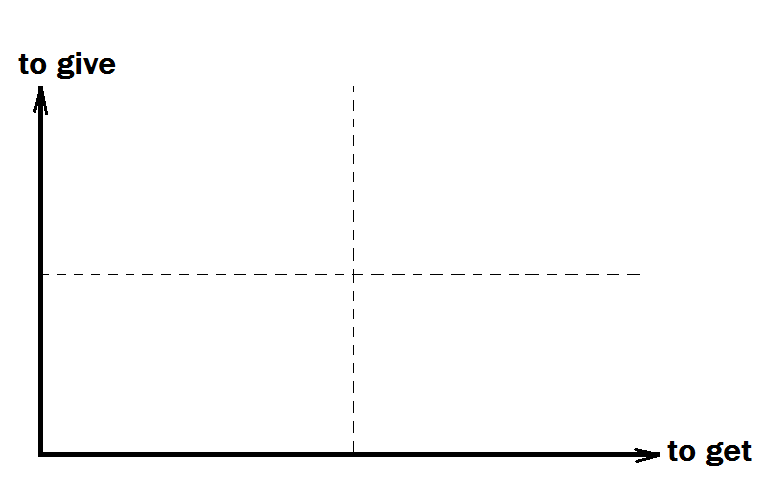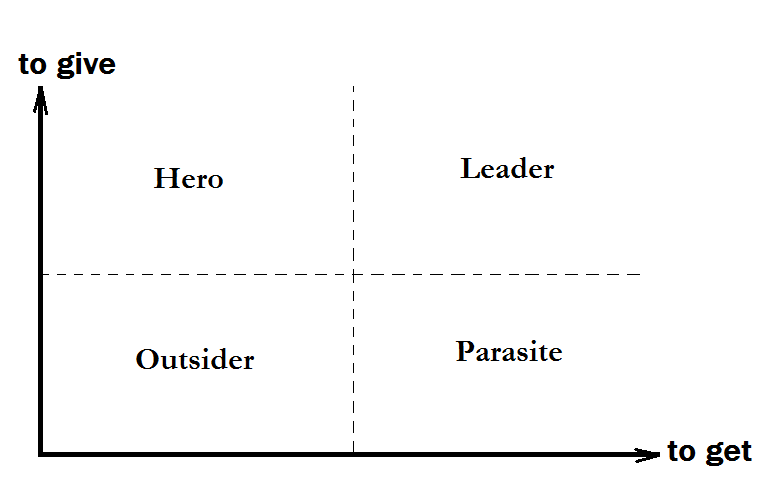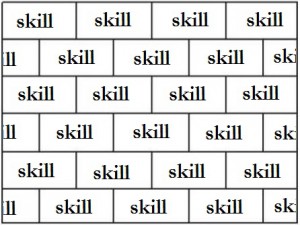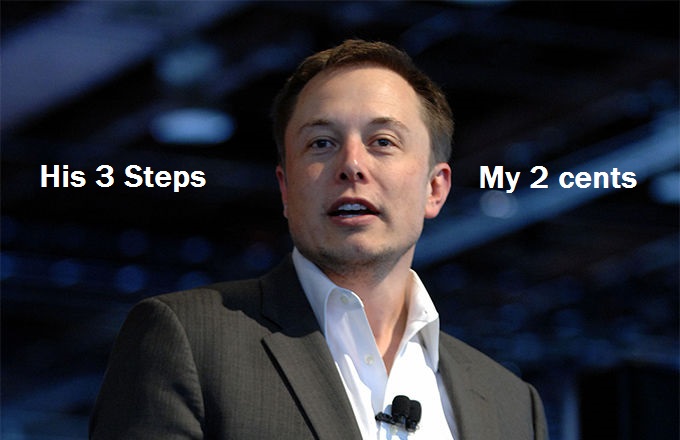Partnership In Business. Part 3 – Who can be a good match

This is an article #3 about partnership in business – a series of articles started in Part 1 – Your chances and Part 2 – Right questions. This time we are going to talk about who exactly can become a good business partner.
No friends, no relatives
 Many people think that good personal relationships before establishing business is a perfect basis to start business partnership. Of course, if you are enemies, it is highly unlikely that you can be partners in business. But, nevertheless, some distance between partners is absolutely necessary. Partnership is a set of mutual obligations, and you will feel way more uncomfortable to disobey the obligations if there is some distance between you. To some extent, the more distance – the better.
Many people think that good personal relationships before establishing business is a perfect basis to start business partnership. Of course, if you are enemies, it is highly unlikely that you can be partners in business. But, nevertheless, some distance between partners is absolutely necessary. Partnership is a set of mutual obligations, and you will feel way more uncomfortable to disobey the obligations if there is some distance between you. To some extent, the more distance – the better.
Don’t get me wrong. Some of my relatives could be perfect business partners for me. But it is rather an exception. Such friend or relative must be very adequate and have enough sense of delicacy at work.
A great social technologist V. Tarassov says:
Friendship can be based on business, but business cannot be based on friendship (my 2 cents: otherwise you may lose either).
He or She must be a leader
Captain Obvious strikes back! But let’s first look what it actually means. In life we use the term leader intuitively, without actually thinking what it means. I guess, if I asked you to define what leader means, you would say that is someone who is number one in some contest or sort of that. But that’s not what I mean. There is another meaning. Please look at the picture below. We are going to define leadership in terms of “to-give and to-get” coordinates.

The terminology below is made up, to the best of my knowledge, by Radislav Gandapas.
How would we call someone who works rather to give then to get, or in other words, the one who struggles first for others, not for himself? It’s an altruist, or a Hero. Left top corner.
How would you call someone who never gives, only gets? The one who gets the resources for himself and never contributes to others? Dependent? It is a form of parasitism. A Parasite! Right bottom corner.
Many people make an agreement with themselves: I reduce my needs, I don’t dream about Ferrari and so on. But in return I don’t make efforts, and at half past five I go to pub. Deliberate asceticism? Radislav calls them Outsiders. As opposed to leaders. Left bottom corner, of course.
One last cell: the one who approximately equally motivated by giving to others and by getting for himself. That’s a Leader.

I think I don’t have to convince you that your partner must reside on upper cells, rather then bottom ones. Ability to give (or dedication in a way) is crucially important in business partnership.
Why leader, not hero? Well, first, heroes attract parasites, not leaders. And second, I think the leader (who also thinks of himself) has more balanced and strong motivation. Plus, in many cases heroes tend to have pure social entrepreneurial mindset, which stops them from building commercially successful ventures.
Same level of maturity
First lets explain maturity. With regards to many matters in life, maturity is a combination of your responsibility and initiative (of course, there are way more components out there, but these are two crucial ones). For a good and productive partnership partners should be in the same ballpark in terms of maturity. For example, for me a partner with high level of initiative but low level of responsibility (let’s call this classic high school attitude) is a misery. But for another “high-schooler” such partner can be a good match!
Skill Set
Business requires a lot of skills (practical things as opposed to theoretical knowledge):  networking, managerial skills, people skills, entrepreneurial thinking etc. Nobody was born with such a skill set. So, both you and your partner should eager to get them equally. Your pace and motivation in learning must be comparable, otherwise one of you will turn into a dragging chute for your business.
networking, managerial skills, people skills, entrepreneurial thinking etc. Nobody was born with such a skill set. So, both you and your partner should eager to get them equally. Your pace and motivation in learning must be comparable, otherwise one of you will turn into a dragging chute for your business.
Solvency
Even if you don’t make drastic mistakes and your business is not in red, still the process of its growth is very-very SLO-O-OW. So, each partner must be in a good financial situation. Otherwise you can’t afford it! Plus, everyday financial pressure will add more stress into your already tough life.
Some of my colleagues tell that their best motivation to make business was debt they had. Maybe this kind of negative motivation works perfectly for them, but I would refrain from being motivated by calls from collection agencies.
Self-discipline
If I was asked to stress out just one trait a partner should have, I would say it is self-discipline.  In startup partners do not have bosses (you may argue that a VC can be such a boss in some cases). Classical discipline based on self-preservation instinct (fear to be fired) does not work here. And you may be surprised to see how many very disciplined people (when they had a boss) turn into unruly lazybones in no-boss environment. Be ready to witness such Jekyll-and-Hyde examples!
In startup partners do not have bosses (you may argue that a VC can be such a boss in some cases). Classical discipline based on self-preservation instinct (fear to be fired) does not work here. And you may be surprised to see how many very disciplined people (when they had a boss) turn into unruly lazybones in no-boss environment. Be ready to witness such Jekyll-and-Hyde examples!
You and your partner must resonate
Even though some distance is important, and every partner stays in his lane all the time, but all the partners should be on the same page in terms of philosophy, attitude, thinking, world-building (of course, all with regards to business) etc.
Two more aspects. One – partners’ dedication and motivation also should be on the similar levels. And two, which is often neglected by our rationalism, partners should have similar levels of energy. Your potential partner can be knowledgeable but energetically on his last legs, and this may significantly downplay his contribution and/or hinder any interaction with him/her.
So, where?
I think that the best way to assess someone in advance is either to work or to study together. So, the main sources of potential business partners:
So, the main sources of potential business partners:
- school, university;
- colleagues at work;
- pals (not close friends!);
- some experts in the realm (beware of too unequal partnership);
- somebody you may meet at conferences, forums etc.
- key employees of your business (unless they became key persons because of political games and unethical moves).
And beware of: close friends, relatives, bossy dictators, anybody lacking trust, someone who can pre-judge you (say, because of the difference in the age), somebody who got upper hand on you etc.
Check all this in practice
When you are at lunch with your colleagues and you are talking about geopolitics, business, investments etc. many people may seem to be a perfect business-match for you. But don’t rush to make conclusions. The devil is in the detail. Watch them. For example, minor signs of laziness at work can indicate that your potential partner works as Swiss watch only because he fears his boss. If so, it is very likely that he lacks of self-discipline, and this will become flagrant in your startup. Or your friend asks you to teach him about investments, but bails out after the first time: obvious lack of persisting. The same way you may notice some flavor of procrastination, irresponsibility etc.
Watch non-congruence in the behavior. This comes with experience.
Instead of conclusion
We see that finding a good partner is somewhat like finding a needle in a haystack. Moreover, not each needle will work for you. Nevertheless, don’t give up! Best of luck and all the success in your partnerships!

 But there is a bit of the elephant in the room: Elon got 22mln for creating the viable business. And on the way to complete this task he experienced the drug of pure leadership, it is like a tiger who first time felt the taste of flesh. After such an experience none of the people who I know, would agree to just veg out in the lap of luxury. Successful entrepreneurs actually can. But the feeling that you are capable of creating a viable business is HUGE REWARD in itself.
But there is a bit of the elephant in the room: Elon got 22mln for creating the viable business. And on the way to complete this task he experienced the drug of pure leadership, it is like a tiger who first time felt the taste of flesh. After such an experience none of the people who I know, would agree to just veg out in the lap of luxury. Successful entrepreneurs actually can. But the feeling that you are capable of creating a viable business is HUGE REWARD in itself.
 to accept the worst-case scenario first. Really? Accept the defeat, and then go to war?! Do you really believe that with a such attitude anybody can create a successful business? Yes, I know that you will definitely learn to be aware of the worst-case scenario down the road anyway, but it cannot become a cornerstone of your success. And also, how is it connected to “win first, and then go to war”? Can anybody explain this to me? To me it looks far-far-fetched.
to accept the worst-case scenario first. Really? Accept the defeat, and then go to war?! Do you really believe that with a such attitude anybody can create a successful business? Yes, I know that you will definitely learn to be aware of the worst-case scenario down the road anyway, but it cannot become a cornerstone of your success. And also, how is it connected to “win first, and then go to war”? Can anybody explain this to me? To me it looks far-far-fetched. There is no correlation between how much you read and the level of your success. In fact, I know people who read a lot, but are not bold enough to go and apply the knowledge. For them it is an alibi – nobody can rebuke them, because they do so much: visit seminars, read books, take educational courses, mingle with like-minded people etc.
There is no correlation between how much you read and the level of your success. In fact, I know people who read a lot, but are not bold enough to go and apply the knowledge. For them it is an alibi – nobody can rebuke them, because they do so much: visit seminars, read books, take educational courses, mingle with like-minded people etc.